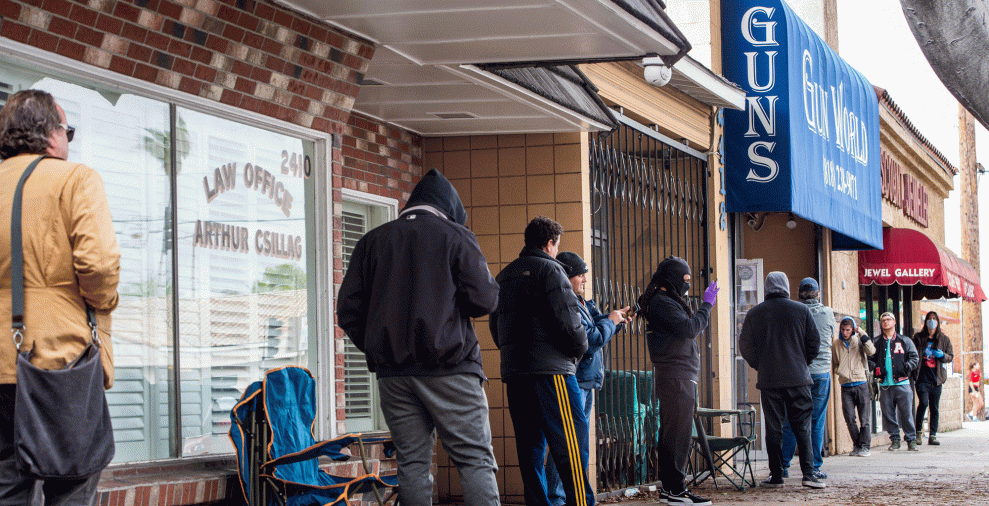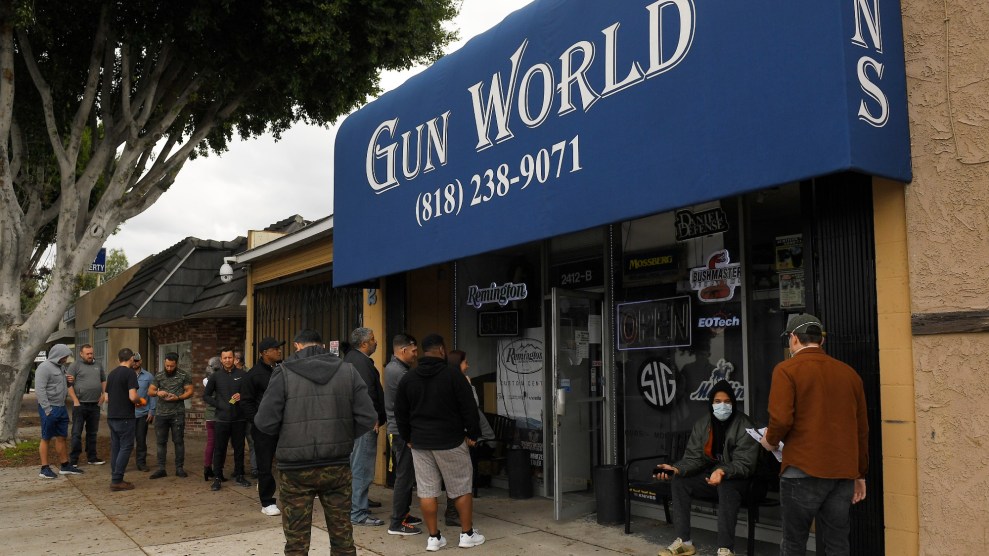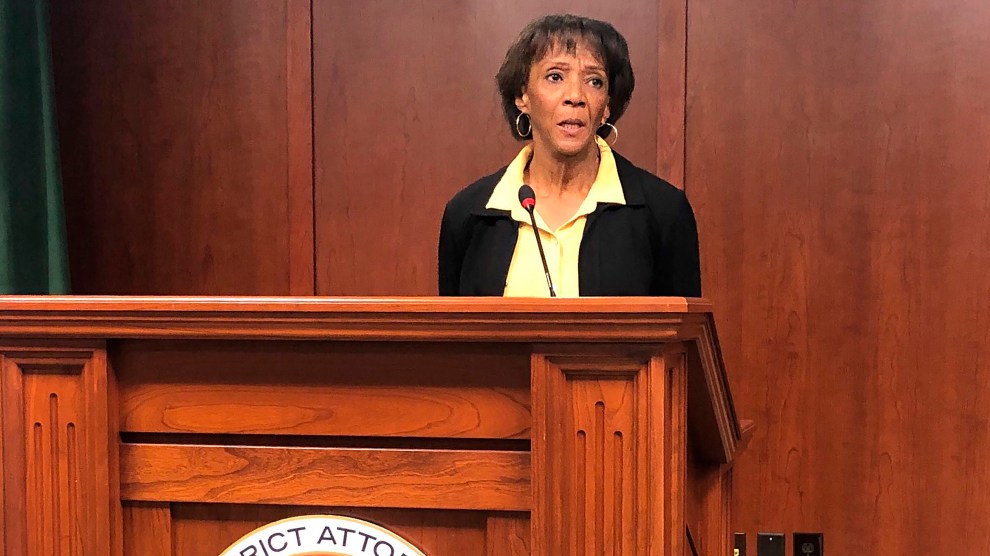
Shoppers wait in line to buy ammunition in Burbank, California amid the coronavirus outbreakSarah Reingewirtz/Getty
As the coronavirus spreads in the United States, demand for guns is surging—and that has experts worried about the prospect of gun violence down the line.
In March, the FBI’s National Instant Criminal Background Check System (NICS) recorded 3.7 million checks—34 percent more than the previous month, and 12 percent more than the previous record in December of 2015 at the height of the “Barack Boom.”
Because no federal database tracks firearm sales, background checks are seen as an indicator of overall gun purchases. It’s an imperfect system: Background checks are used for things other than gun sales (like concealed carry permit applications), can cover purchases of multiple guns, and in some cases, aren’t required to buy a gun at all.
Often, demand for guns rises after mass shootings, presumably as people fear that new restrictions would limit firearm sales. In recent weeks, some gun stores have been overwhelmed by customers, many of whom are reportedly first-time buyers. The mentality driving the recent surge appears to be, “All hell is breaking loose: What can I do to protect myself? I’ll get a gun,” says David Hemenway, director of Harvard’s Injury Control Research Center. The National Shooting Sports Foundation, a firearms industry trade association, warned of background check delays on its website: “NSSF is working hard during this national crisis to make sure that our members are allowed to stay in business, providing safety and security for Americans.”
Some states have seen especially big rises in demand for guns. In Rhode Island, Michigan, Arizona, and New Hampshire, the number of background checks more than doubled in a month. (Still, the number of background checks in Rhode Island was relatively small to begin with, increasing from 2,597 in February to 6,169 in March.) Illinois had the most background checks overall, with more than 600,000 each month this year so far, but didn’t see a particularly big change month over month. Texas, Florida, California, and Michigan had the biggest changes in the number of background checks between February and March.
Early data suggests that coronavirus is having a mixed effect on crime: Many police departments have reported lower rates of crime overall but increased domestic violence calls. The combination of stay-at-home orders, financial instability, and accessibility of guns has led public health experts to speculate that suicide rates will increase over the coming months.
The effect of this particular surge in gun demand could be limited, since there are already so many guns in the United States, notes Hemenway. A 2018 study found that there were nearly 400 million civilian-owned guns in the country—enough for every man, woman, and child to own at least one. Roughly 3 in 10 adults report owning a gun, according to the Pew Research Center. “The problem is that most of these people, if they’re new buyers are buying for self-defense, that means they’ll store them badly,” says Hemenway. “There may be an increase in unintentional harm.”















